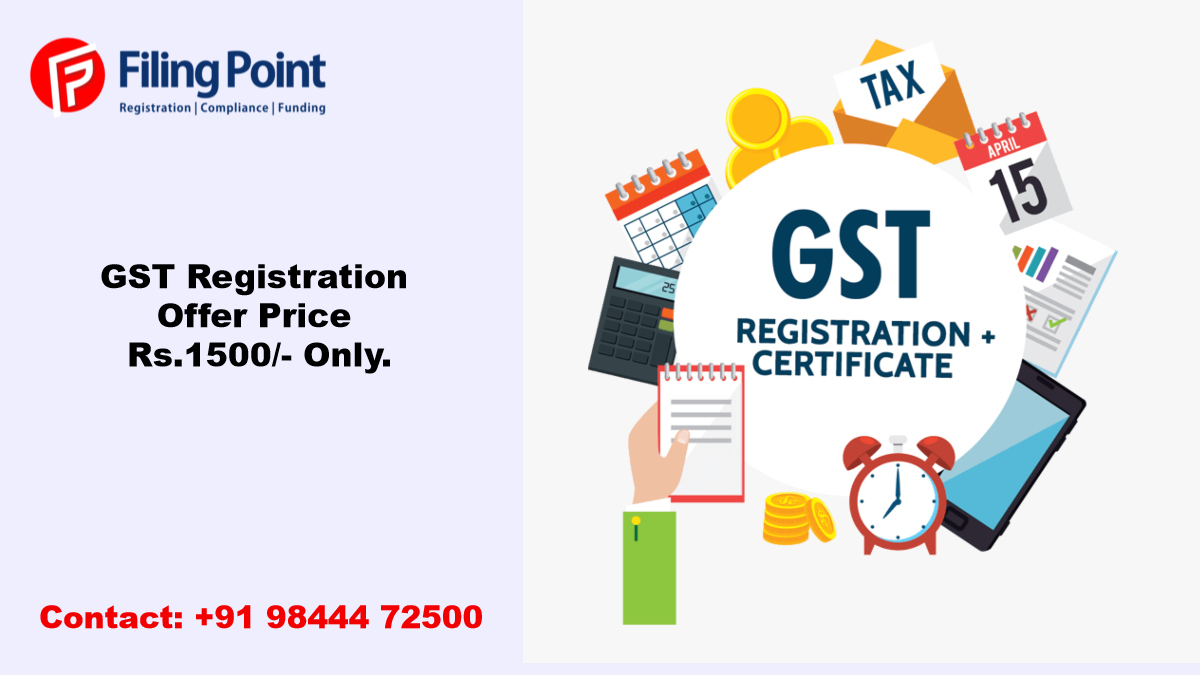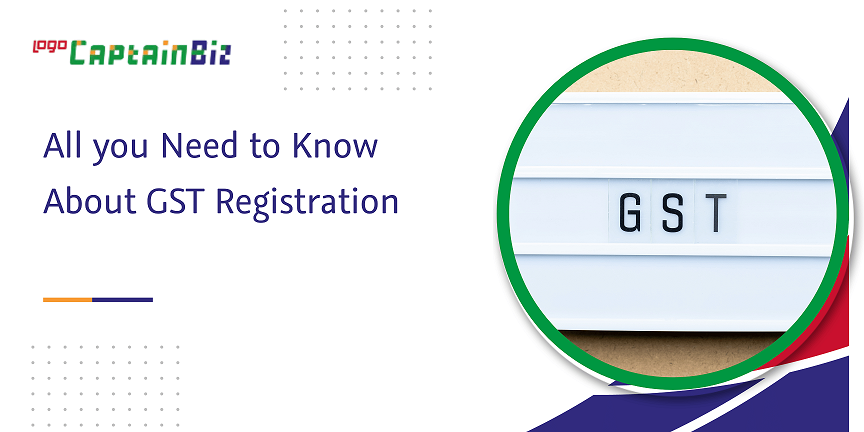Navigating the Intricacies of GST Enrollment: Expert Tips to Ensure a Effective and smooth Registration
Browsing the detailed landscape of GST registration can be a complicated task for businesses intending to conform with regulatory needs. The process involves a plethora of steps, documentation, and potential risks that could prevent a smooth registration experience - Simplify your GST registration process with our expert services in Singapore. In the world of tax conformity, seeking specialist advice and strategies is extremely important to guarantee a successful result. Recognizing the subtleties of GST registration and leveraging experienced ideas can make a considerable distinction in improving the procedure and optimizing advantages. By exploring the typical challenges and vital components associated with GST enrollment, organizations can equip themselves with the understanding required to browse this complex terrain properly.
Comprehending GST Registration Process
Navigating through the details of the GST registration procedure needs a comprehensive understanding of the documentation and needs involved. The procedure begins by establishing whether a service is eligible for GST enrollment based on factors such as yearly turnover, interstate purchases, and the type of solutions or goods supplied.
Furthermore, it is vital to make sure that all information entered in the application are exact and up to date, as any disparities may lead to hold-ups or rejection of the registration. Recognizing the various GST kinds and their particular usages is also crucial in finishing the registration process efficiently. By acquainting oneself with these requirements and remaining arranged throughout the application process, companies can browse the GST enrollment process effectively and properly.
Essential Paperwork for Enrollment
In order to efficiently complete the GST registration process, services must gather and submit necessary documents that substantiates their eligibility and supports the info supplied in the application. The vital documents required for GST registration usually consist of evidence of organization unification or address, enrollment and identification evidence of the key business proprietor or companions, financial institution account declarations, organization frying pan card, and evidence of service address such as energy expenses or lease contract.

Making sure that all needed paperwork is precise, up to date, and in the prescribed layout is crucial to stay clear of hold-ups or issues throughout the GST registration process. Businesses need to meticulously assess the paper demands described by the tax authorities to promote a smooth and effective registration.
Usual Risks to Prevent
A critical element of the GST registration process entails steering clear of usual errors that can restrain the smooth completion of enrollment for services. Mistakes in information such as the company address, name, or frying pan can lead to delays in the registration procedure.
Another typical blunder is not understanding the limit for enrollment. Companies need to sign up for GST if their annual turnover goes beyond the prescribed limitation, falling short which can lead to penalties and lawful effects (Simplify your GST registration process with our expert services in Singapore). see here now It is important for services to remain educated about the registration requirements and due dates to prevent non-compliance concerns.
In addition, some services overlook the value of timely submission of registration records. By staying clear of these typical risks, companies can navigate the GST enrollment procedure effectively and guarantee compliance with the tax obligation guidelines.
Making Best Use Of Input Tax Obligation Credit Score Advantages

Services need to also frequently resolve their acquisitions with the auto-generated input tax obligation credit rating available on the GST website to determine any type of inconsistencies and remedy them without delay. It is advisable to conduct periodic reviews of input tax credit scores declares to guarantee compliance with GST laws and policies. By vigilantly following these practices, businesses can maximize their input tax obligation credit rating benefits, improve their profits, and remain certified with GST demands.
Expert Tips for Smooth Registration
Smooth registration under the GST regimen starts with careful interest to detail in ensuring all essential records and info are prepared accurately and in conformity with regulative requirements. To kickstart the enrollment process seamlessly, businesses need to first ascertain their qualification for GST enrollment based on turn over and service activities. It is critical to collect and organize crucial papers such as PAN card, evidence of company registration, address and identification evidence of promoters, financial institution statements, and business-specific records like rental contracts or energy expenses for the properties. Making sure that all information supplied corresponds throughout documents can stop delays or beings rejected throughout the registration procedure. Additionally, validating the accuracy of details gone into in the GST registration application is vital. Any inconsistencies or mistakes can result in difficulties in the future. Seeking experienced assistance or using on-line resources supplied by the tax authorities can also help in a smoother enrollment process, helping services stay clear of common risks and browse the intricacies of GST registration easily.

Verdict
In conclusion, navigating the complexities of GST registration requires a complete understanding of the procedure, vital documentation, common mistakes to prevent, and methods to make best use of input tax obligation credit rating benefits. By following expert tips and standards, organizations can make certain a effective and smooth enrollment process, ultimately leading to conformity with GST laws and making best use of tax obligation advantages.
By familiarizing oneself with these requirements and remaining arranged throughout the application process, businesses can browse the GST enrollment process efficiently and effectively.
A critical facet of the GST registration process entails guiding clear of common mistakes that can hamper the smooth completion of enrollment for services. By preventing these common risks, companies can navigate the GST enrollment process efficiently and make sure compliance with the tax obligation policies.
To start the registration process effortlessly, companies need to first ascertain their qualification for GST registration based on turn over and business tasks. Seeking skilled assistance or making use of online sources offered by the tax obligation authorities can also help in a smoother registration process, aiding companies that site stay clear of common risks and navigate the complexities of GST enrollment with ease.